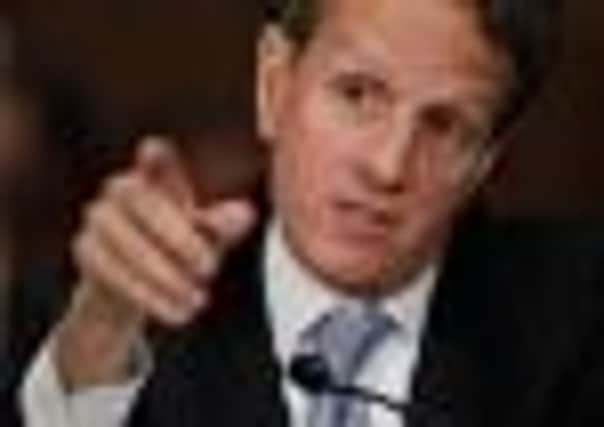George Kerevan: Google may not be the magic carpet it imagines


Since Google founder (and Steve Jobs clone) Larry Page returned as chief executive in April, changes have been obvious. The company’s unwieldy portfolio of projects has been trimmed, though its employment headcount increased by nearly 10 per cent in the past three months.
But that may be a smart move as Google has a questionable reputation when it comes to customer support. The company also benefited from improved revenues from its expanding mobile phone business.
Advertisement
Hide AdAdvertisement
Hide AdHowever, while Google is an aggressive competitor in an industry where computers, telephones and social networking are fast merging, we need to keep a sense of proportion about its size and vulnerabilities. Apples’ quarterly profits are on a par with Google’s entire quarterly revenues.
Plus there is a lot of uneducated hype surrounding Google’s activities. True, Google’s Android is the most-used smartphone software in the world but it is open source. And while Google’s answer to Facebook has 40 million users, the original has a staggering 750 million.
Google’s revenues are still tied heavily to advertising. Its mobile phone revenues come not from selling handsets but from the advertising payback from the use made of its ubiquitous search engine. It is ads not technology that fills the Google coffers, and the ad business can be fickle.
The danger to Google lies in the temptation to use its powerful revenue stream to take undue risks. Page is on record as saying that, while fast decisions may go wrong, there is no such thing as a good “slow” decision. Page is a high tech gambler.
In August, he announced plans to acquire Motorola’s mobile phone manufacturing business for $12.5 billion. But this is a volume, low-margin sector and it’s easy to get the market wrong – witness Nokia.
That does not mean Page’s risk-taking instincts are wrong. But Google has tough competitors – Apple, Facebook and Microsoft – in the battle to provide an integrated global platform for tomorrow’s communications apps.
Facebook is good at letting third parties connect easily to its platform, swelling the customer base.
Too often Google uses its own platform for its owns proprietary interests, frightening off third-party suppliers and limiting consumer interest.
Advertisement
Hide AdAdvertisement
Hide AdNext week Google reveals an advanced version of its Android operating system (called Ice Cream Sandwich). Ignore any hype. The real test is not technology but the applications it supports and the customers logging on to use them.
If Google loses the race for users, its advertising revenue model is not sustainable.
There are times when talking shops can matter
INTERNATIONAL summits are a devalued currency. We’ve had so many since the financial crisis began in 2008 that it is difficult to care. It feels as if each succeeding gathering decides less than the previous one did. So this weekend’s pow-wow of G20 finance ministers in Paris has generated the minimum headlines and maximum bitchiness, as the rest of the world took the opportunity to bash Brussels for its inability to contain the euro crisis.
South Africa’s finance boss, Pravin Gordhan, happily complained that the bail-out resources available to the new European Financial Stability Facility (EFSF) were totally inadequate to the job. You could almost hear the groans from his weary French and German counterparts, who are only too well aware of the stakes. America’s Treasury secretary, Tim Geithner, added to the pressure in a coded fashion, announcing in Paris that the IMF had more than enough resources to help with Europe’s crisis. Decoded: no more cash from Washington, Europe needs to ante up.
However, the next few weeks will see two international conferences that really are make-or-break for the global economic system – an EU leaders summit on 23 October, and a full G20 gathering on 3 November. These events should (in theory) agree the final details of the EFSF bail-out fund and the re-capitalising of Europe’s wobbly banks. The IMF, America, Japan and the Bric countries should back the plan wholeheartedly. End of problem and a year-end rally in equities. Cross your fingers.